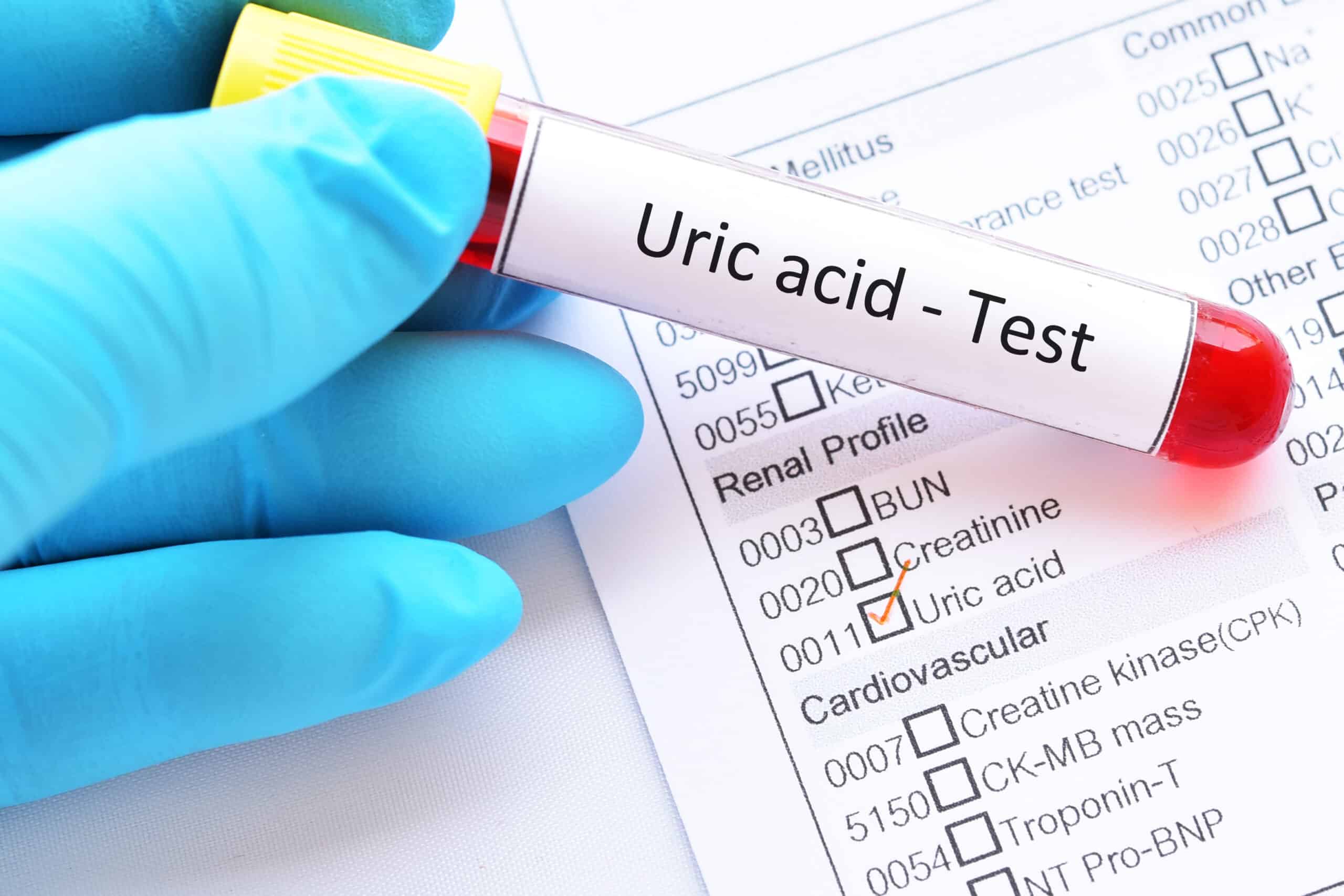Gout is typically indicative of other more serious health issues, such as the state of metabolic health. Occurrence/recurrence of gout is increasing, and it is one of the most common inflammatory arthritis in America.
The mechanisms behind gout are not completely understood yet, but there are many clues. First off it is a form of joint inflammation that is caused by excessive uric acid in the circulation, when this threshold is exceeded painful crystals can form in and/or around the joints that trigger symptoms of pain.
High levels of uric acid can lead to gout, but these levels indicate that other factors are involved with the main focus being on a dietary perspective. Excessive levels are typically driven by a genetic predisposition and ingestion of high purine foods. When purines are broken down and metabolized uric acid is formed as a by-product which is normal unless in excessive levels.
Consuming less purine rich foods should help to lower uric acid levels to decrease the risk of gout, in theory. But this theory is not exact as other nutrients appear to aggravate symptoms of gout as well. Based on scientific evidence there are some foods that should be avoided if you have gout.
Alcohol has been shown to dramatically increase the risk of gout. The Framingham Heart Study which included over 4,500 subjects found regular intake of alcohol was associated with 3 times greater risk in women and double the risk for men. Beer appeared to be the worst contributor followed by hard liquors.
Beef, chicken, and other meats are prime suspects to trigger symptoms of gout, and data somewhat confirms these suspicions: each additional serving of meat or seafood has been associated with a 21% and 7% increased risk of gout which may be due to the sharper increase in blood uric acid. That being said it may be worth including omega-3 into the diet as it is anti-inflammatory and may help with symptoms. Organ meats are high in purines and should be avoided, the most common forms of offal include liver, brain, heart, kidneys, and pate.
Soft drinks and fruit juice are not good for the diet of those with gout due to the added sugars and sweeteners. Fructose intake has been strongly linked with gout, and these beverages add the greatest amounts of fructose to the diet. Studies have shown that gout occurrence has increased along with fructose consumption since 1970; 2 or more of these sugary drinks was associated with an 85% increased risk of gout in a study involving over 46,000 men. It is unclear if the increase in gout is caused directly by fructose or indirectly through another mechanism such as obesity.
Certain fruits may trigger recurrent gout attacks if consumed frequently, especially if one is overweight and following the typical Western diet. One study found frequent consumption of apples and oranges was linked with an increased risk of gout, no link was found with any other fruits low in fructose.
Aspirin and diuretics can increase gout risks significantly. Low doses of aspirin prevent excretion of uric acid levels while high doses promote excretion. One study involving 49 older adults taking 75mg of aspirin a day had increased blood uric acid levels by 6% in less than a week; 150 mg doses kept levels high in the second week; and 300 mg doses brought levels down in the third week. Doses between 81-325 mg per day are associated with a doubled risk of gout; and low doses for 2 consecutive days increases the risk of recurrent gout attacks. Diuretics can also trigger a gout attack and should only be used under the guidance and supervision of a physician.
Other factors such as stress, family history, lack of physical exercise and sleep apnoea also affect gout. For the best treatment of gout it is recommended to consult with a physician who will help you to develop a treatment plan for your needs, as it is important to deal with all factors. By understanding what to avoid and why may help you to prevent and overcome a gout attack.




